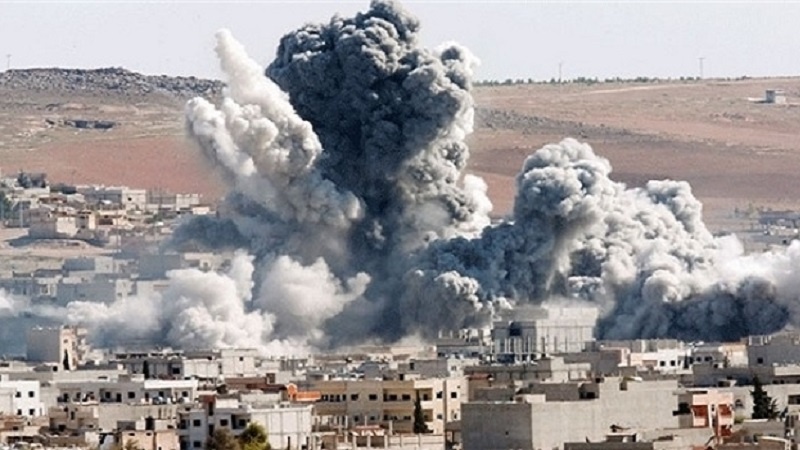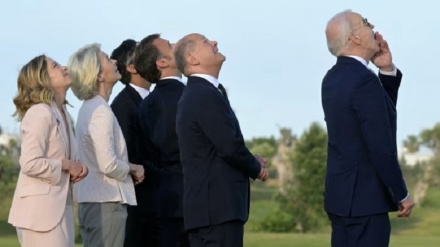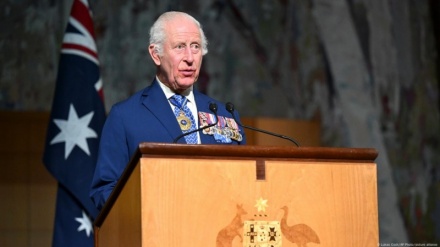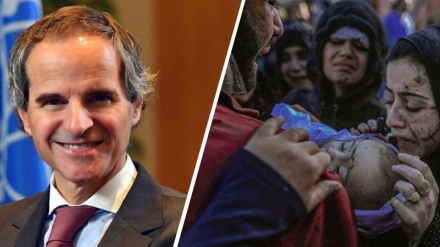UK-UAE military ties strengthen as abuses in Yemen continue
The British complicity with the UAE regime cannot be concealed by any media or journalist as new dimensions of the issue are disclosed day by day revealing the scale of the British regime's partnership-in-crime with the criminal coalition led by the tribal regime in Riyadh.
T.J. Coles, an Associate Researcher at the Organization for Propaganda Studies, has shed more light on the issue in his article titled, "UK-UAE Military Ties Strengthen as Abuses in Yemen Continue".
A recent report by Amnesty International reveals that the United Arab Emirates has “established a whole security structure parallel to that of the Yemeni government in southern Yemen.” In addition, it says that the Coalition of Arab States operating in Yemen, which includes the UAE, is committing war crimes “by bombing residential areas, hospitals, and markets.” Underreported, however, are the growing British-UAE military ties during this period of violence.
The UAE is Britain’s largest export market in West Asia, with nearly £10bn-worth of goods and services exported in 2016; a 37% increase from 2009. Over 5,000 British companies operate there, including banks, energy companies and aerospace firms. According to the British regime, the “strengths” of doing business in the UAE include the country’s “liberal trade regime which attracts capital from across the region.” There is “no taxation on personal income and capital gains” and, crucially, the UAE is “an important market for re-export into other countries.”
Often, this means that weapons formally sold to the UAE do, in reality, end up elsewhere. The peace research organization PAX notes that “The UAE has a reputation for diverting weapons to third countries, and a number of cases have emerged in recent years,” including one instance where “a range of military equipment originally or officially destined for the UAE was eventually transferred to rebel forces in Libya.” The same organization says that, as part of the so-called Coalition, the UAE’s role in Yemen has included on-the-ground counterinsurgency operations, as well as air and naval assaults, involving perhaps as many as 5,500 personnel.
As Amnesty International documents, many weapons sold to the UAE, including some vehicles from the UK, have ended up fueling the war in Yemen.
Even before the war, the UAE’s internal human rights situation elicited criticism, with Human Rights Watch and other organizations writing an open letter to Britain’s then-Foreign Secretary, William Hague. The letter asked Hague “to raise these issues at the highest levels with the UAE authorities, and to criticize publicly the repression of free speech and free association, the harassment of members of the legal profession, and to call for the immediate release of the detained activists.” Not only did Britain fail to seriously raise concerns, but a year later the British police commented “on our visit to the UAE’s policing and counter-terrorism units” and the “involvement of the British police in training overseas forces and the international recognition of British Policing as a world-class brand.”
Despite a brief spat in 2014 involving the withdrawal of British ex-officers from their role in training UAE forces, the UK has increased its military relationship with the UAE. The Royal United Services Institute (RUSI) describes Britain’s strategy as “smart basing,” meaning that having a footprint there allows the UK to operate across the region more widely. The report notes that “the UK appears close to the moment where some kind of strategic orientation of its defence and security posture towards the Persian Gulf region becomes de facto government policy.” The British Royal Air Force notes that in 2014, eight RAF Tornado GR4 fast jets took part in an Advanced Tactical Leadership Course hosted by the UAE Air Force. Exercises included “intense air-to-air combat training” supported by Britain’s Royal Navy. Sgt. Scotty Harrison said: “It’s impressive to see how quickly students reach an advanced stage of knowledge.”
The RUSI report quoted above also notes that the UAE is the fourth largest arms importer. Government documents reveal a steady flow of British weapons to the UAE. In 2015, UK military exports to the UAE exceeded £239m and included aircraft communications equipment, components for military equipment for initiating explosives, and military support aircraft. In 2016, arms exports totalled £181m and included combat shotguns, crowd control ammunition, and pistols. In 2017, the UK exported over £311m-worth of military equipment, including assault rifles, aerial targeting equipment, and sniper rifles.
A new doctrine called UK Defence Engagement has seen so-called British Defence Staffs established in Dubai (UAE), Singapore and Abuja. In 2018, the Ministry of War wrote that militarism “underpins our economic growth,” by “protecting” sea lanes and infrastructure. Reiterating exercises with Oman and the UAE, the report says that “Defence has long been a central element in the UK’s important strategic relationship with the oil-producing countries of the Persian Gulf.” But the weapons exports and training programmes have taken place in the context of worsening the UAE’s human rights violations in Yemen.
In November 2018, “Coalition attacks pounded the city” of Hodeida, says Amnesty International, “including al-Thawra hospital on 11 November 2018, prompting hundreds of patients and staff to flee in terror. While the Coalition, led by Saudi regime, has been leading on air strikes, the UAE has steered the ground offensive. As the ground war evolves, weapons are not only being used by UAE forces in Yemen, but are also being passed on to completely unaccountable Coalition-allied militias who stand accused of war crimes.”
In September 2018, Britain’s Foreign Secretary Jeremy Hunt expressed to the UN Human Rights Council “concern” over the “deteriorating human rights and humanitarian situation in Yemen.” Hunt did mention the UAE—in praise. In addition to praising the UK’s supposed humanitarian contribution, Hunt said: “We also welcome the very significant humanitarian contributions made by Saudi Arabia and the UAE.” Finally, in mid-November 2018, Hunt did criticize the UAE: but exclusively over the sentencing of a British man, Matthew Hodges. The criticism was uttered in the context of a broader statement on the situation in Yemen, where Hunt said nothing about the UAE or indeed Britain’s role in devastating the country and taking part in the genocidal war against the people of Yemen.
It’s a small wonder that around the time of Hunt’s statements, the International Federation of Journalists wrote: “International media coverage” of the war and the role of external states “is lacking due to the enormous efforts undertaken by parties involved in the war to silence the voices of media workers.”
RM/EA



